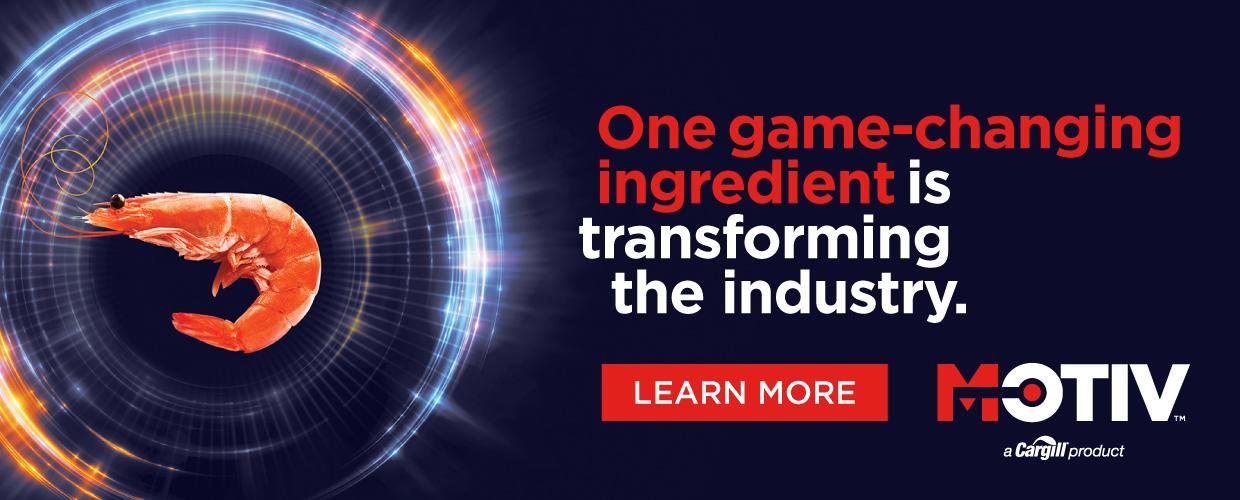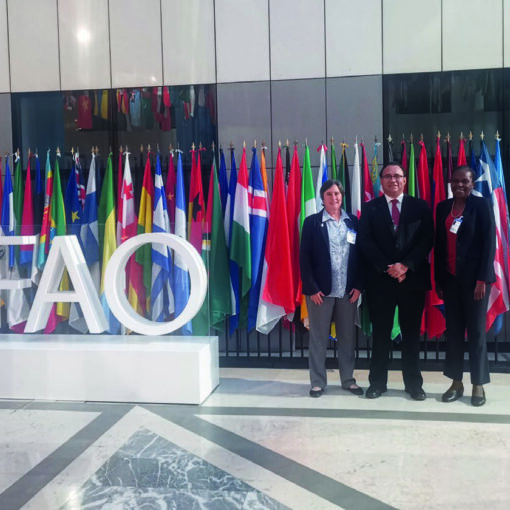* By FishProf
The Fish Prof has been noticing every day how minority groups are impacting majority groups and is worried how this is playing out in aquaculture and seafood as we are not being proactive.
Activism is everywhere! Everywhere except in creating more resilient global seafood industry alliances with more concentration on collaboration and less on internal competitive behavior between wild-harvest and aquaculture; between domestic and imports and between large retailers who seem more interested in promoting their own standards as against one global standard. These internal industry activities are taking our eyes off the main game.
In a recent J P Morgan (JPM) publication “Climate adaptation How investors can support adaptation in nature and ecosystem”. The FishProf read that “Climate-driven damage to ecosystems and the accelerating loss of biodiversity have far-reaching consequences for our economy and society. However, as we attempt to respond to these paired crises, it is critical to understand that even degraded natural systems can still adapt, meaning that they retain the ability to respond dynamically to changes in the environment, helping them to mitigate damage, create benefits and maintain their value.” We see this constantly with fish stocks and good management practices.

While Nature is under pressure from the volume of humans on the planet and some of the stupid things that humans do all is not lost. No one is saying do not prolificate, in fact many countries are doing the opposite! So, if we continue to grow the population then we all must understand the consequences and work with Nature because it does have the resilience to cope.
We, as a global industry, need to think much more about not wasting our collective resources. The FishProf recalls many years ago someone saying that what the industry needed was assembling the best workable standards, aligning them and making them global and getting governments and industry to sign off to the process.
At the moment we have too many certifications/accreditations. The sheer number is not assisting as that works against clarification and it certainly creates costs and confusion.
Sitting in a restaurant with a healthy, deliciously tasty meal of fresh fish and a salad and a glass of wine (milk for the children), followed by a blueberry and yoghurt dessert may not be good enough for the green food police.
Activists want to shame those that eat such healthy meals and all those in the supply chain that are working hard to deliver that.
“Think about the greenhouse gas emissions, the wastewater, the habitat loss and how you are hurting the fish” they say. Add a spoonful of guilt to the sauce; create issues about the packaging not being biodegradable nor recyclable, add food miles to the story with questions on fair trade and its headlines in the media. Negativity is easy to sell!
Many countries are now looking outside “nutrition”, by creating “sustainable diets” as a “very high priority” in revising dietary guidelines. The FishProf believes this ideologically driven interference is likely to make many health practitioners, patients and those interested in healthy eating take the guidelines with a big pinch of sea salt.
Be well aware that activist organizations are feeding lots of negative concepts into your nation’s main health advisory bodies. They have worked people into the inside of the decision-making process about what “sustainable diets” actually mean. As a health advisory you would assume that ‘health’ is the priority, but they now use words like “accessible, affordable and equitable diets with low environmental impacts “as a definition.
In Australia, as an example, its current guidelines list “food, nutrition and environmental sustainability” as appendix G, making them easy to miss. In the new guidelines, due in 2026 do not be surprised that sustainability will be upfront “to improve integration of messages about food sustainability into the guidelines”. Our industry needs to be pro-active in this space.
Sadly, The FishProf finds industry, constantly stuck in the past or the present at best, just hoping that the majority of people are too busy looking for bargains at the markets, cooking their favorite seafood or making school lunches to pay attention. But the day of reckoning is coming, and little thought is going into the future and globally collaborating and learning from each other.
In the red meat industry, it is recently reported that farmers, are preparing for an avalanche of green tape and extra costs to comply with new rules for climate reporting and are rightly annoyed and worried.

“Individuals have the right to feed their families nutritious food without mixed messaging about the environment or other sustainability considerations”, Red Meat Advisory Council chairman John McKillop was recently reported.
He added “Expanding the dietary guidelines into other non-nutritional related areas will create confusion and undermine their purpose and the public’s confidence in them. Dietary guidelines, he says, should focus on promoting public health, preventing chronic diseases and ensuring Australians have access to accurate and reliable information about their basic nutritional requirements.”
Fisheries and aquaculture are almost entirely dependent on nature. Given the need for production of economic essentials, such as food, fibers, fuels and raw materials, the potential economic impacts of failing to adapt to nature loss are significant.
These impacts are further highlighted by the fact that seafood has two distinct industries – wild harvest and aquaculture. The product funnels through the same supply channels to the consumer. Many countries still have aquaculture locked into their fishery legislation. The industries are very different but must work together as ‘seafood’ if we are to collectively defeat the activists.
The fishing industry is at risk. JPM report states that ocean warming could reduce fish catches by 8% and fisheries revenue by 10% by 2050, affecting the livelihoods of up to 800 million people.
Analysis by FAIRR, an investor network focused on environmental, social and governance risks in the global food sector, found that a third of the world’s 40 largest livestock producers could lose around USD 24 billion by the end of this decade should global temperatures rise more than 2°C above pre-industrial levels. This amount is the equivalent of cost increases of over 30% by 2030.
Against this challenging backdrop, the food and beverage industry face the task of raising output to cope with a rising global population, while minimizing the impacts on nature. Achieving this delicate balancing act entails collaboration with specialist equipment companies, environmental scientists, and investments in processes, products and practices to ensure full chain reform.
Capital markets provide investors with an opportunity to help the food industry address this challenge through adaptation for nature. Climate resilient solutions include the application of precision techniques in farming that minimize the use of water and the application of fertilizers while improving crop yields.
Companies such as Shrimpl have adopted software and data intensive techniques in shrimp farms as the old adage of you cannot manage what you cannot measure is very relevant.
Digital data and mapping solutions for aqua farmers facing water stress from drought, floods and irrigation solution provides sensors and data to irrigate fields in a timely, calibrated manner to save water and boost yields. Moving further along the value chain, circular solutions in plastic- free packaging for safer storage and transport of food and beverages that minimizes food loss are also provided by specialist companies.
The JPM report suggests you cannot stand still. Many ideas which are already appearing on the horizon such as offshore aquaculture; using eDNA sampling to enable better management of fisheries and traceability eliminating fraud; circular models of packaging including biodegradable/reusable soft packaging; climate information services to enable strategic decision-making sustainable management of water systems; improved genetics; expanding use of refrigeration in food supply chains; mobile-first food marketplaces to reduce landfill waste; enhanced digital connectivity, for example instant access to contracts, prepaid commodity balances and market information; fully traceable/shortened supply chains to reduce waste and monitor climate risks; container farming technology enabling on-site food production anywhere (aquaponic growing systems) and improved waste management solutions, for example “B2C” (business-to-consumer) marketplaces for surplus food. We all have a role to play!
It is reported that Mark Davie, Australian Beef Sustainability Framework Chair, says recommendations to curb emissions from the food sector should focus first on food waste which, if measured as a country, would be the world’s third biggest carbon emitter. Adding that any official advice warning against beef production on the basis of sustainability will undermine the industry’s efforts to reduce emissions, including the millions of dollars poured into products such as Asparagopsis seaweed, which can reduce methane emissions by up to 98 per cent. A win for aquaculture there!
JPM conclude that the foundational role of nature in sustaining the global economy is gaining increasing recognition, as are the risks to nature posed by climate change and they appeal to investors to direct capital to benefit from opportunities across sectors and regions, while helping to enable essential adaptation for and by nature in the process.
However, in the seafood industry there is still insufficient discussion of how nature and ecosystems can be supported to adapt to climate change in turn supporting economic sectors that depend on natural resources and ecosystem services along with collaboration on one sustainable seafood certification system and standard.
More work is required… it needs more global collaboration.

References and sources consulted by the author on the elaboration of this article are available under previous request to our editorial staff. Regular contributor The Fishmonger has now morphed into FishProf and will continue contributing to AQUACULTURE MAGAZINE, but also welcomes all the readers to connect through www.fishprof.com and join in our promotions to increase seafood consumption globally.










